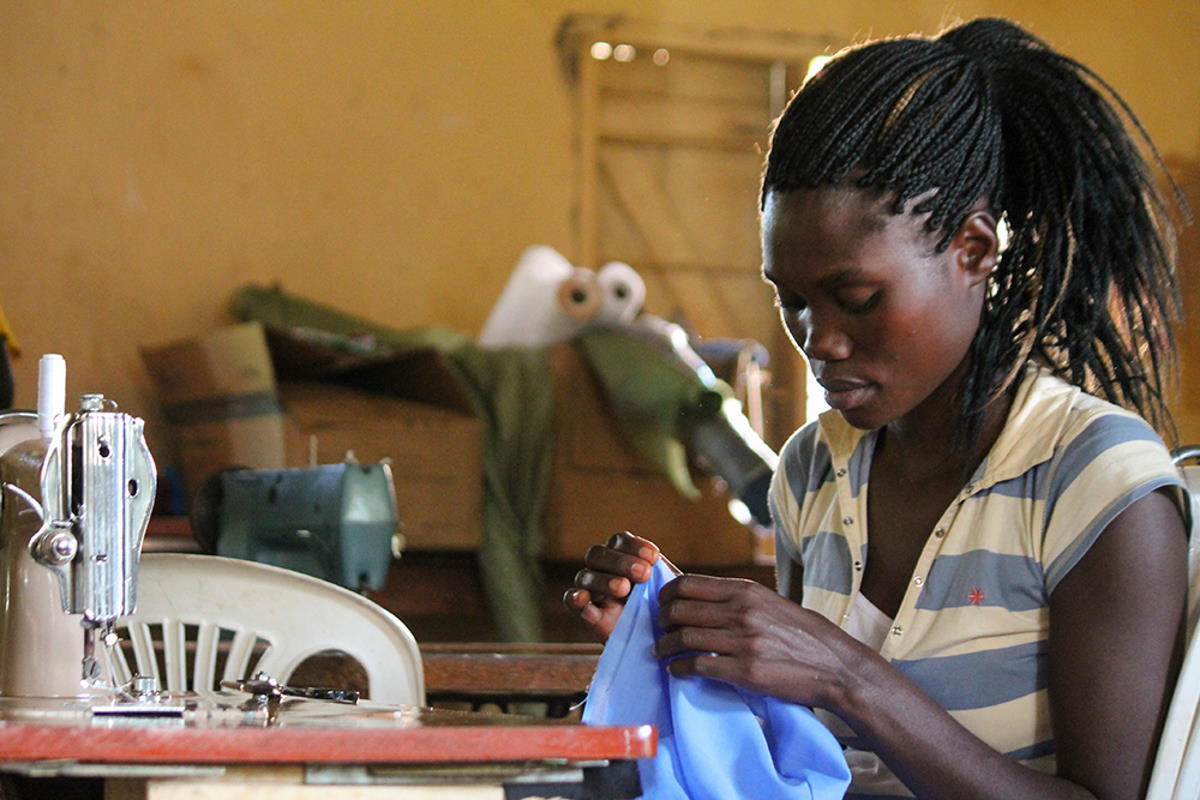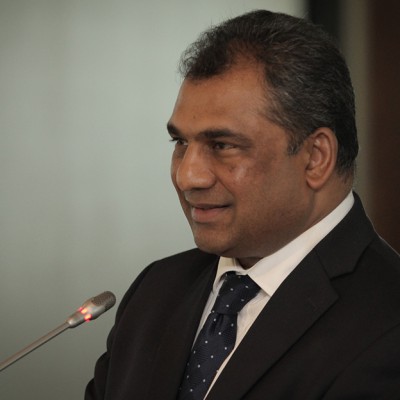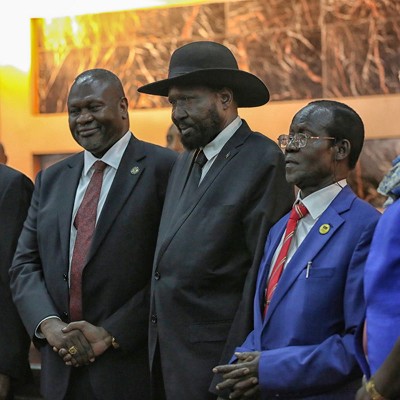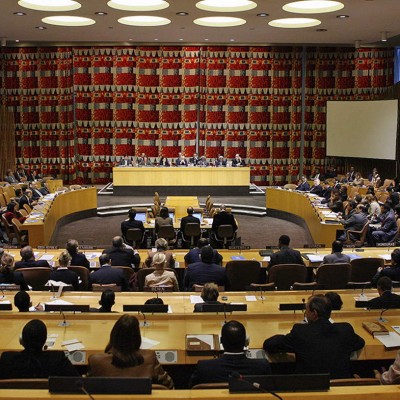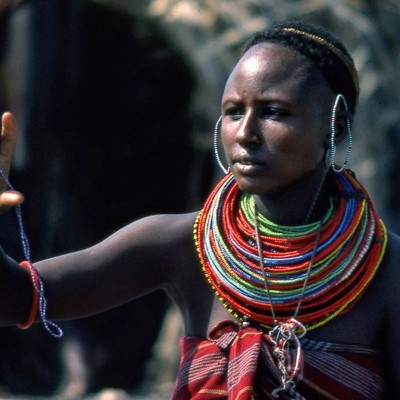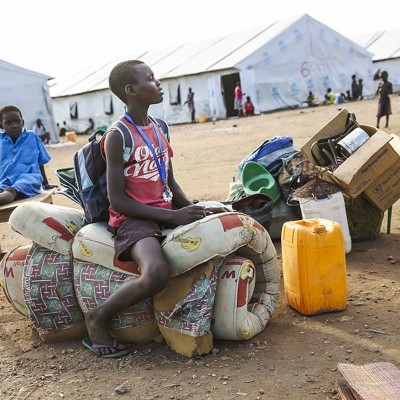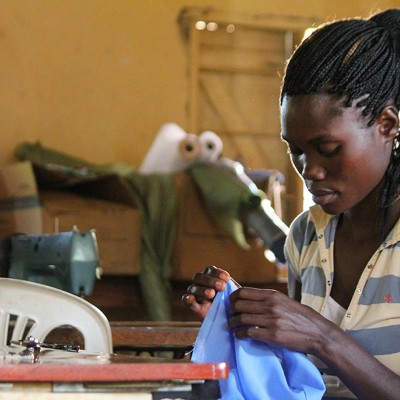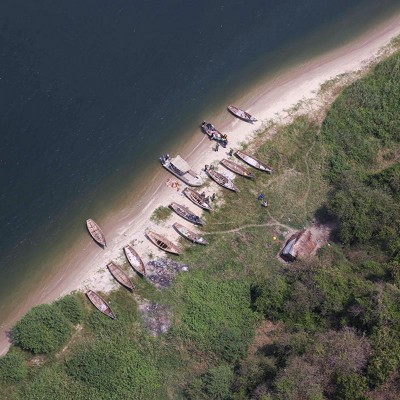Introduction
This article draws from a skills-building project carried out by the Nneola Foundation for Women and Children Development, a livelihoods and peacebuilding initiative for women in Nigeria. The organisation was founded by the author to support women in developing work-related skills that aid socio-economic development. This project was a one-year (2017–2018) skills acquisition training for women that took place in Delta State, Nigeria. The Nneola Foundation partnered with a local tailoring organisation in Delta State to teach sewing skills to five unemployed married women, who were selected from a pool of applicants based on their financial needs and interest in acquiring tailoring skills. Drawing on insights from a year-long interaction with the project coordinator, this article discusses the potential and limitations of tailoring as a peacebuilding and skills-building initiative that seeks to provide women with livelihood and community engagement opportunities. Situated within Johan Galtung’s concepts of positive peace and structural violence,1 the article further demonstrates how structural violence (inequality) can be addressed through positive peacebuilding (livelihood opportunities). This was a relatively small project, and the lessons learnt are summarised and discussed, with recommendations for those considering similar projects in the future.
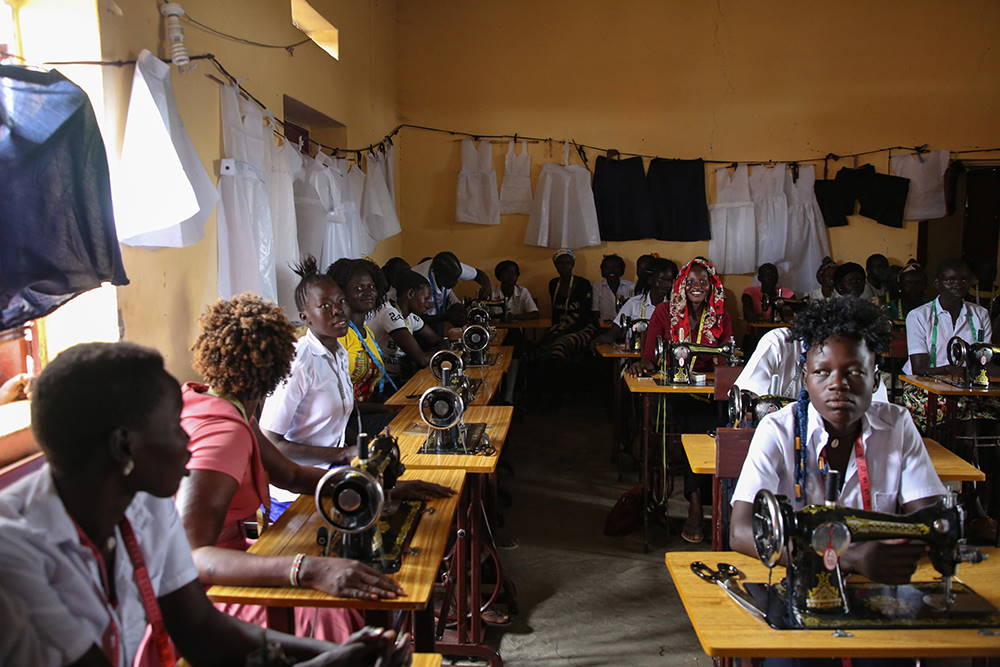
Peacebuilding is about helping to stop, decrease and assist people to recover from all forms of violence – “it empowers people to foster relationships at all levels that sustain them and their environment.”2 The Nneola Foundation project was implemented to promote entrepreneurship and peacebuilding engagement by focusing on women in three important areas: livelihoods, peer support and community engagement. Given the existence of gender-based violence, income inequality, patriarchy and marginalisation, opportunities for livelihoods and community development are crucial for positive peace and sustainable development. Inequality is rife in all sectors of the Nigerian sociopolitical economy and is also gendered, as exemplified by women’s under-representation in politics.3 Gender inequality is significantly high in Nigeria compared to other countries at the same level of growth and development; however, gender and income equality have the potential to produce a healthy society in all aspects. Women can help bring about this transformation if they are provided with the right tools.4
Many women have been denied economic opportunities based on their gender, and the resultant effects are income inequality, job discrimination, marginalisation and subordination in both the public and private spheres.5 Providing prospects for livelihoods is critical for peacebuilding, as sustenance provides opportunities for marginalised and vulnerable groups to remain financially stable, particularly in challenging times.6 Livelihoods can come in the form of establishing cooperatives that focus on women’s growth and emancipation through income-earning skills,7 and when the state supports such schemes, it can promote women’s participation in development – not only as recipients, but as critical actors.8
Women-led organisations have served as avenues for empowering women and addressing issues of inequality and gender-cultural stereotypes. Through their participation in livelihoods projects, women have been able to address conflicts in their homes and within their communities.9 Despite the benefits that emerge when women are economically empowered, women’s capacity as income earners and the potential benefits are often not recognised. Economic independence is essential when people are recovering from disasters. Even when there is no direct violence or crisis, income-generating sources provide women with the adequate resources they need to sustain themselves and their families. The participants in the Nneola Foundation project were women facing economic challenges and seeking to gain income-generating skills to support their well-being, and that of their families.
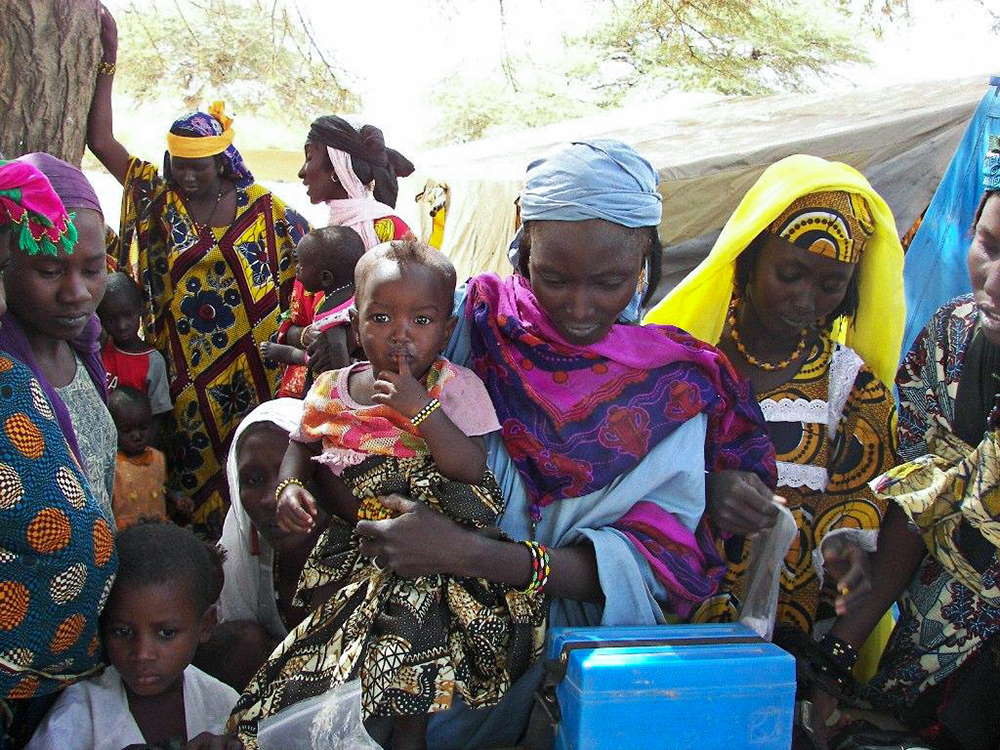
Resilience is the ability to recover swiftly from challenging situations. When people have some amount of resilience, built through networks and relationships, they can recover quicker than others with less resilience.10 Hence, peer support is a valuable way of building strong resilience. Resilience is a critical aspect of building positive peace, and when developed as a practice that supports collaboration and relationship-building, it can increase the level of women’s participation in peacebuilding initiatives. The Nneola Foundation project was conceived as an opportunity for women to network with each other and get support from their peers while learning new skills. Peer support is also vital when people are recovering from traumatic experiences and is essential for women’s emotional well-being. Findings from a study on women’s challenging experiences of marriage indicate that joining a support group enhanced women’s well-being.11 In Mali, women’s networks have become a crucial avenue for maternal and child survival.12 Further, women play important peacebuilding roles in their families and communities. These roles are significant, as studies show that through community involvement, women have incorporated peacemaking into their everyday lives.13
The concept of the Nneola Foundation project was based on the understanding of peace as the existence of structures that support the capacity-building of people and their resilience. This idea of peace is connected to the United Nations (UN) Sustainable Development Goals, specifically Goal 1: no poverty; Goal 2: zero hunger; Goal 3: good health and well-being; Goal 5: gender equality; Goal 8: decent work and economic growth; Goal 10: reduced inequalities; and Goal 16: peace, justice and strong institutions.14 The project also recognised that creating a space for women to learn income-generating skills could empower them to build relationships that would benefit them and their community.
Structural Violence and Positive Peace
Galtung15 argues that when a person suffers an injustice that could have been avoided, then that person is a victim of violence. He further distinguishes between different types of violence. Direct or personal violence is present when people are physically harmed by others. Structural violence or indirect violence refers to social injustice – this is a form of violence that occurs when people are limited from achieving their potential. Indirect violence is said to be systematic when people are denied the resources through which they could achieve that potential.16 Based on Galtung’s definition of indirect violence, if women are denied equal opportunities based on their gender, then they are victims of indirect or structural violence.
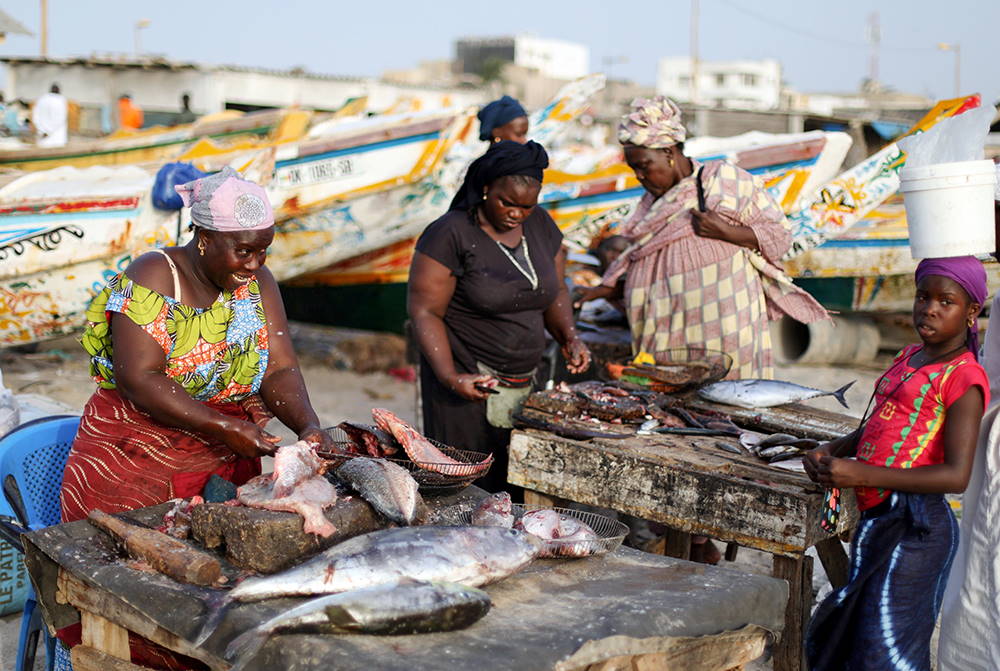
Patriarchal structures and ideologies are ways in which power, resources and other opportunities are unevenly distributed between men and women. For the African woman, structural violence is seen in her history of colonisation and other traditional structures that deny her equal opportunities for development compared to her male counterpart.17 The Nneola Foundation project was inspired by feminist and action research methodologies because they work towards emancipation and social change. For example, feminist studies are rooted in women’s realities and centred around women and the problems of oppression in a society; thus, women’s experiences are the foundation for knowledge creation in feminist studies.18 Action research is an inclusive process that recognises the capacity of participants to engage in an emancipatory research process that will lead to their development. The goals of action research include a collective commitment to study a problem, and a plan to work towards action that will profit the people experiencing the issue.19 Action research projects are often conducted in a way that allows active participation of all stakeholders in working towards social change.
In making the connections between peace and violence, Galtung opines that just as violence has two sides, peace also has two sides: negative peace and positive peace. Negative peace is the absence of personal or direct violence, and positive peace is the absence of structural violence, which is the presence of social justice.20 Positive peacebuilding includes the availability of human resources and structures of support within the wider system to help people reach their potential. While the Nneola Foundation project did not address the pervasive systematic gender inequality, it sought to contribute to positive peacebuilding by providing opportunities for growth and development through income-generating skills and a space for relationship-building.
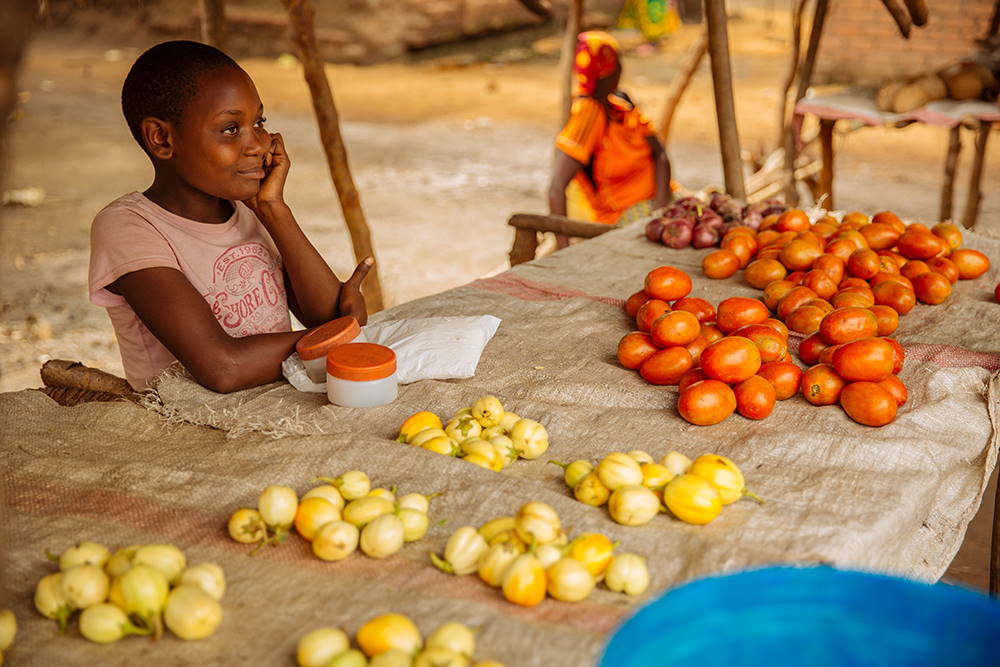
Lessons Learnt from the Nneola Foundation Project
The Nneola Foundation project was conceptualised on the understanding of the benefits of livelihood opportunities and community engagement, especially for marginalised women. There are many women in low-income communities with limited formal education whose livelihood activities are restricted to farming and petty trading, and their wages barely allow them the necessities of life. This lack of basic needs hinders them from actively engaging in community service. Therefore, means of livelihoods provide women with an opportunity to financially support themselves and their families – and, in so doing, they are better able to participate in peacebuilding and community service engagements. Also, women’s resilience is built through the support of other women – by bringing women of similar backgrounds together, the project intended to promote women working and learning collaboratively. With these considerations of the advantages of a livelihoods and community engagement initiative, the Nneola Foundation project recruited five women who had little to no prior tailoring skills.
Livelihoods
The Nneola Foundation skills-building project was a success because the women completed the training and are now skilled tailors, who use their new skills to earn an income and make clothes for their immediate families. However, follow-up evaluations show that petty trading remained some of the participants’ main source of income even after completing the training, while tailoring was used as a source of supplemental income. This is because petty trading offers these women easier access to money. There is no doubt that tailoring as a livelihoods skill has a great economic value, but it requires startup capital and some women cannot afford this without financial support from others. This suggests that acquiring the skill alone is not sufficient. Anyone establishing similar projects might want to look beyond the training phase as the participants will need further support to establish a business, which may include renting a shop and acquiring the required sewing kits.
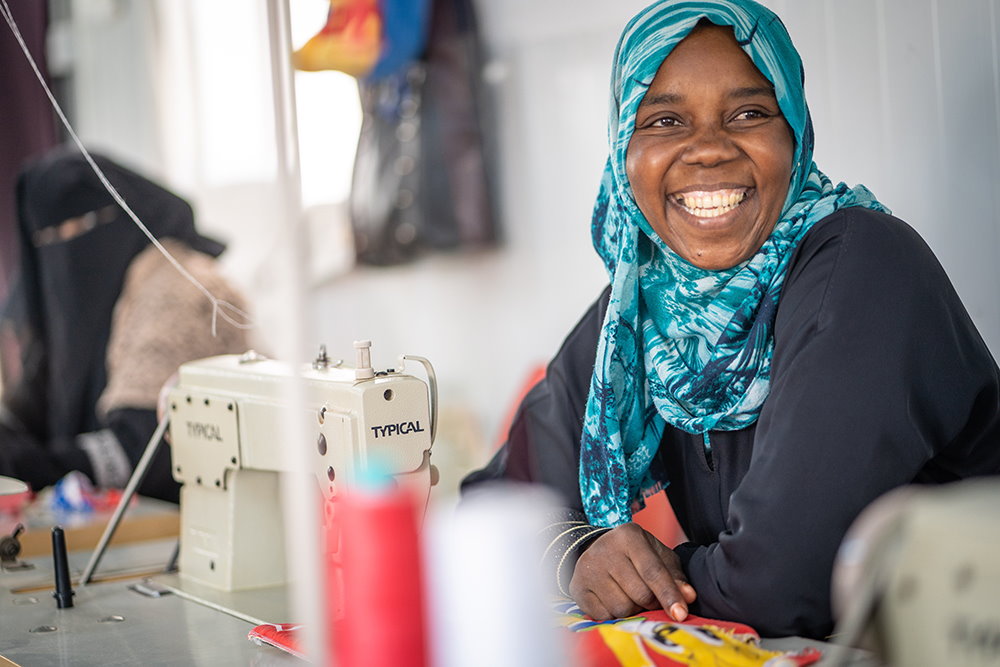
Peer Support
The Nneola Foundation project provided a support network for women. As the women learnt how to sew, they helped each other in several ways – such as sharing stories of strength to encourage each other. This helped the participants become each other’s allies. The women were able to share their challenges and fears and address issues of self-confidence. At the end of the one-year training, the participants were more vocal, self-assured and confident. This suggests that there are other positive benefits that come with learning collaboratively, particularly if the participants have similar backgrounds. The process of learning this skill enhanced other aspects of the women’s lives, such as fostering social connections with other women, which improved their learning environment. Hence, skills-building projects do not only serve economic purposes but have the potential to improve participants’ self-worth and general well-being.
Community Engagement
The original plan for the project was to dedicate some time to visiting orphanages to gift them with the clothes made from the project. However, as a result of limited funding, the participants could not sew clothes for the orphanages as originally planned. However, some small efforts were made in this regard, and participants visited a local orphanage with gifts for the children and spent time interacting with the children and their caregivers. The participants reported that this visit and the connections they established with those in the orphanage made them happy. Also, being able to offer assistance to others, no matter how little, was a meaningful gesture for the women. Similar projects could include some aspects of community engagement, such as volunteering in orphanages or other community centres to enrich the women’s learning experiences.
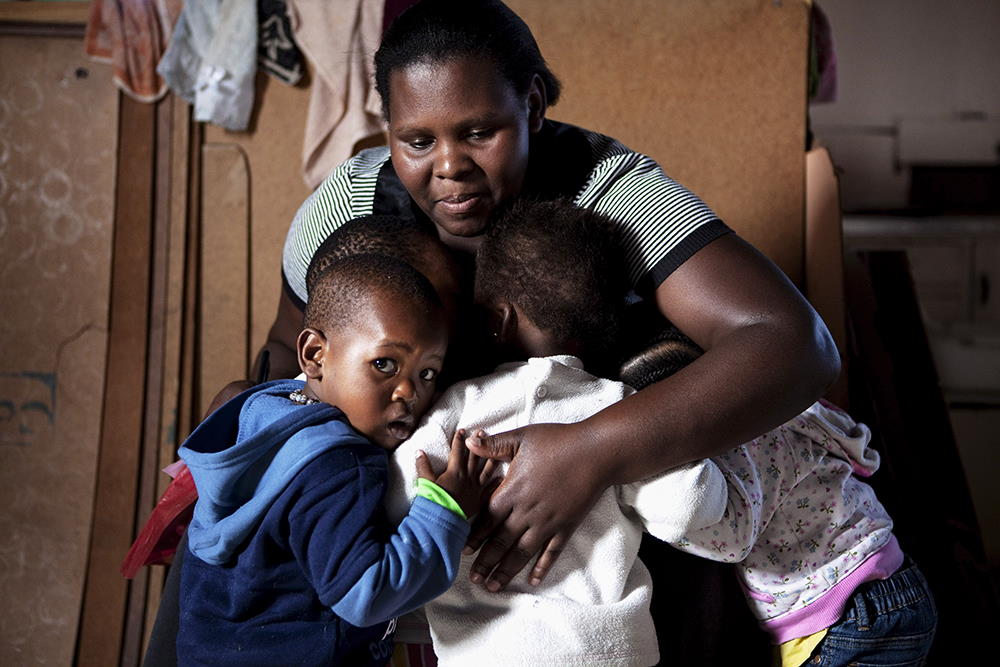
Lack of Funding
The project, funded by the Nneola Foundation and other well-wishers, intended to distribute sewing machines to each participant at the end of the one-year training, so that the women could continue making clothes to generate income to support themselves and their families. While this objective was achieved, there were other financial limitations that the project developer did not consider, such as startup capital and further funding for the sewing kit materials necessary for learning, as well as subsidised transportation for the participants. Issues specific to transportation for participants should be given due consideration in such projects, because the participants had limited resources to fund their commutes to the training location. Hence, they often resorted to walking long distances to the training location, in addition to their competing responsibilities as mothers and primary caregivers for their children. Future projects should endeavour to anticipate possible areas (besides the livelihoods factor) where participants might require additional support, and secure funding to address this before the start of the project.
The lessons learnt and limitations presented in this article do not diminish the significant success of this project and the social and economic impact it had on women. One of the many lessons learnt is that effecting positive change in the lives of women – no matter how diminutive – can have many benefits. For the participants in the Nneola Foundation project, the benefits included learning new skills with which to support themselves and their families financially, and learning to support and build social connections with each other, as well as with other groups in the community.
Conclusion
This article discussed the purpose, objectives and lessons learnt from a peacebuilding and skills-building project for financially challenged women that was carried out by the Nneola Foundation in Delta State, Nigeria. The project achieved the main objectives of supporting women in their goals of becoming entrepreneurs through skills acquisition, and also building relationships and other support systems. Livelihoods, peer support and community development are structures that support positive peace, and these pillars were incorporated in the Nneola Foundation initiative. A major limitation encountered by the project was the failure to forecast other areas, besides the livelihoods factor, where participants might require additional support to participate successfully in the project. Notwithstanding this limitation, the Nneola Foundation project strengthens the view that through livelihood opportunities, women can become agents of social change. Therefore, skills-building initiatives and collaborative learning environments are supportive structures that can strengthen women’s resilience and improve their general well-being. These attributes reflect positive peacebuilding.
Endnotes
- Galtung, Johan (1969) Violence, Peace, and Peace Research. Journal of Peace Research, 6 (3), pp. 167–191.
- Schirch, Lisa (2004) The Little Book of Strategic Peacebuilding. Intercourse: Good Books, p. 9.
- Musau, Zipporah (2015) ‘Closing Africa’s “Elusive” Gender Gap MDG 3: Promote Gender Equality and Empower Women’, Available at: <https://www.un.org/africarenewal/magazine/december-2015/closing-africa%E2%80%99s-%E2%80%98elusive%E2%80%99-gender-gap> [Accessed 17 January 2018].
- International Monetary Fund (IMF) Podcasts (2018) ‘Good for Women Good for Growth: Closing Nigeria’s Gender Gap’, Available at: <https://www.imf.org/en/News/Podcasts/All-Podcasts/2018/03/08/nigeria-gender-inequality> [Accessed 22 June 2018].
- Enloe, Cynthia (2014) Bananas, Beaches and Bases: Making Feminist Sense of International Politics (2nd ed.). Berkeley: University of California Press.
- Environmental Law Institute (2015) ‘Livelihoods Development Critical to Post-conflict Peacebuilding and Economic Recovery – New Study’, Available at: <https://www.eli.org/news/livelihoods-developent-critical-post-conflict-peacebuilding-and-economic-recovery-%E2%80%93-new-study> [Accessed 17 January 2018].
- Raniga, Tanusha (2017) Participatory Experiences of Women in Economic Development Cooperatives in Bhambayi, KwaZulu-Natal, South Africa. Research on Social Work Practice, 27 (2), pp. 215–222.
- Onyejekwe, Chineze (2001) Micro-finance and Economic Empowerment: Women’s Cooperatives in Nigeria. Asian Journal of Women’s Studies, 7 (4), pp. 70–89.
- Ramnarain, Smita (2015) Local Peacebuilding by Women’s Savings and Credit Cooperatives in Nepal. In MacPherson, Ian and Yehudah, Paz (Emmanuel, J. ed.) Concern for Community: The Relevance of Co-operatives to Peace. Victoria: Turning Times Research and Consulting, pp. 179–188.
- Cohen, Harold (2017) ‘What is Resilience?’ Available at: <https://psychcentral.com/lib/what-is-resilience/> [Accessed 15 January 2018].
- Mbatha, Thabile (2011) In and Out of Polygyny: A Case of Black South African Women’s Experiences of Marriage. Agenda, 25 (1), pp. 29–37.
- Adams, Aayne, Madhavan, Sangeetha and Simon, Dominique (2002) Women’s Social Networks and Child Survival in Mali. Social Science & Medicine, 54 (2), pp. 165–178.
- Neustaeter, Robin (2015) ‘It’s Not Just the Icing, It’s the Glue’: Rural Women’s Volunteering in Manitoba, Canada. In Flaherty, Maureen, Byrne, Sean, Tuso, Hamdesa and Matyok, Thomas (eds) Gender and Peacebuilding: All Hands on Required. Lanham: Lexington Books, pp. 195–212
- United Nations (n.d.) ‘About the Sustainable Development Goals’, Available at: <https://www.un.org/sustainabledevelopment/sustainable-development-goals/> [Accessed 23 February 2018].
- Galtung, Johan (1969) op. cit.
- Ibid.
- Ogundipe, Leslie Omolara (1987) African Women, Culture, and Another Development. Présence Africaine, 141, pp. 123–139.
- Harding, Sandra (1987) The Method Question. Feminism & Science, 2 (3), pp. 19–35.
- McIntyre, Alice (2008) Participatory Action Research. Los Angeles: Sage Publications Inc.
- Galtung, Johan (1969) op. cit.

